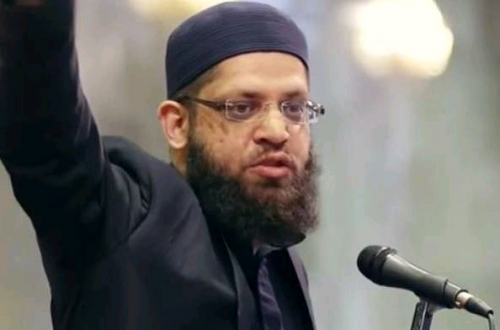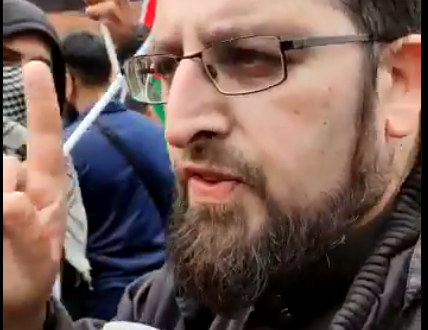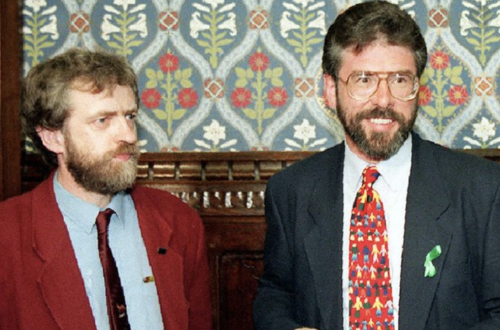Guest post from a former blogger:
I’m somewhat hesitant to write about Christopher Hitchens the day after his death. Unfortunately I never met the man; have yet to read the majority of his books; can give no insight into the impressive volume of literary criticism he produced and have no right nor intention of producing an obituary. There are several wonderful tributes published today by people who do have the knowledge or the personal experience to write about his life in depth.
On top of that, the now routine ‘social media death parade’, the long streams of R.I.P’s on twitter, the fatuous comments, the You Tube clips on facebook, lead me to instinctively want to turn away from the screen and just go for a walk.
But I can’t let the death of Hitchens to go without putting down a few thoughts here on Harry’s Place, which, after all, was in large part created as a result of some readers’ responses to reading his post-September 11 polemics. It is his writing on those issues which, for me and I think I can say a few others in and around this place, brought us to regard him with such respect and it is to that writing only that I want to add a few words.
Hitchens clarity on the key political issues after the attacks of September 11, his willingness to take on the anti-war left, as well as the isolationist or ‘realist’ right-wing, was more than refreshing, it was invigorating and vital. It was taken by some as a call-to-action for those on the left who viewed the concepts of universalism, liberty, international solidarity and anti-fascism as matters which were not up for negotiation, even if they could put us in some strange company at the time.
There were plenty of other strong arguments put forward from good writers and fine minds on the left but I am not sure that without Hitchens the notion of an anti-Islamist, anti-Saddam, pro-democracy left, would have been so firmly established in the political discourse.
Some responded to Hitchens’ fighting talk with words of our own, either writing on blogs or arguing in person, taking heart from someone prepared to fight on very difficult terrain. Sometimes when I tired of trying to explain the left-wing case for the defeat of violent Islamism or for the need to overthrow Saddam’s tyranny, the temptation was just to say – ‘Oh, just go and read Hitchens’. I imagine that wouldn’t have been an approach he would have been comfortable with – he didn’t want to be anyone’s guru, rather a combatant in the war of ideas.
Just as his extremely broad range of knowledge made the current media focus on his atheism to be obviously insufficient as a description of his contribution to the world of ideas, so his lucid description of the totalitarian enemies, his solidarity with it’s victims and belief in the power of human beings to change circumstances, his passion for the freedom of the imagination made him so much more than a columnist or a polemicist. He could describe and he could interpret but I don’t think he lost sight of that old line “the point however is to change it”
Simon Jenkins in the Guardian today writes: “The identikit Trot of our early friendship had became a rabid Bushite defending the Iraq war’. A fresh reminder that the idiocies that had to be argued against a few years ago remain in circulation. Although he was a Marxist to the end and certainly a Trotskyist for many years, I find it hard to imagine Hitchens as ‘identikit’ in any way. And, of course, he certainly never became a “rabid Bushite” .
But the fact that such lazy thinking remains, displaying an inability to countenance the idea that someone on the left could disagree with the antiwar consensus on Iraq, or to even consider the notion that there may be a different way of thinking about the conflict, shows there is a need to carry on doing what so many of us were inspired to do by Hitchens – to argue.
I can’t think of a single columnist, polemicist or debater of the current era who will get close to the extraordinary talent Hitchens showed for those vital elements of life. That is why it is not hyperbole to today talk of Christopher Hitchens being irreplaceable.
But those of us who were inspired by him can commit to those things he was passionate about doing (but also so keen to encourage others to partake in): to read, to learn, to think, argue, write, debate, explain and dispute – not in any vain attempt at emulation but simply because they are tasks that in an increasingly banal and superficial world, are essential for anyone who believes in or hopes for progress.
In a fairer world Hitchens would have had another 20 years of argument left in him. The deeply sad, far too premature end to Hitchens’ life is the starkest of reminders that we have limited time to make the most of whatever abilities we have and the vast human knowledge at our disposal.
As Hitchens put it in Letters to a Young Contrarian:
Never be a spectator of unfairness or stupidity. Seek out argument and disputation for their own sake; the grave will supply plenty of time for silence.
As so often, he had a point.


